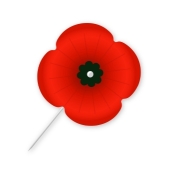Do you like your name and initials? Most people do and, as past research has shown, sometimes we like them enough to influence other important behaviors. For example, Jack is more likely to move to Jacksonville and marry Jackie than is Philip who is more likely to move to Philadelphia and marry Phyllis. Scientists call this phenomenon the “name-letter effect” and argue that it is influential enough to encourage the pursuit of name-resembling life outcomes and partners. [continue reading…]
Research
Children entering kindergarten with elementary math and reading skills are the most likely to do well in school later, even if they have various social and emotional problems, say researchers who examined data from six studies of close to 36,000 preschoolers. Children’s attention-related skills also mattered, the researchers found. [continue reading…]
 For Canadian teens, Remembrance Day is more about the events of 65, even 90 years ago, than it is about current military service. A 2005 study by University of Alberta researchers George Richardson and Laurence Abbott indicated that fewer than 10 per cent of teens think about military personnel serving in Afghanistan, or even those who served in Bosnia, when the red poppies are being passed out. [continue reading…]
For Canadian teens, Remembrance Day is more about the events of 65, even 90 years ago, than it is about current military service. A 2005 study by University of Alberta researchers George Richardson and Laurence Abbott indicated that fewer than 10 per cent of teens think about military personnel serving in Afghanistan, or even those who served in Bosnia, when the red poppies are being passed out. [continue reading…]
With increases in natural hormones and human touch, our trust levels go up and down. This New findings in neuroeconomics are beginning to identify why people are cooperative and trusting, while others are considered sociopaths. It’s all in the brain’s chemistry, says Paul Zak. These findings are part of the emerging field of neuroeconomics. [continue reading…]
